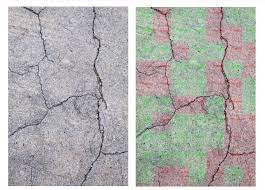Autonomous Crack Detection using Deep Learning on Synthetic Datasets

Chinmay Makarand Pimpalkhare
Guiding Professor
Prof. Dnyanesh Pawaskar
Project Title
Autonomous Crack Detection using Deep Learning on Synthetic Datasets
Field
AI/ML
Problem Statement Description
Since gathering experimental data is expensive, we wish to create a pipeline to create synthetic data through FEM simulations of a cracked plate subjected to thermal boundary conditions and train a deep learning model to detect these cracks. Further, given the thermal profiles, we also wish to train a network to spit out the boundary conditions. The latter problem is commonly known as inverse modelling in heat transfer literature.
What was your motivation for choosing this field?
Wish to pursue higher studies in AI/ML
What factors did you consider while choosing professors?
Choose a prof who does research in a domain you are interested in. It is better if you have done a course under them, since that way you have an idea about how they go about their work and if you can share a common wavelength with them.
Duration of the project
This is my BTP, so an year long project
Overall experience
My work involves completely setting up both the data generation and the deep learning pipeline. The time I had to commit was on the average around 10 hours a week, with a standard deviation of 2-3 hours. The project wasn’t difficult per se, but since I was the only person working on it, some aspects were challenging. However, I had complete freedom to explore whatever I wanted and that was a perk. Overall, it was a great experience,
Key learnings
It was a very good learning experience for me. Generally, even though there are a lot of course projects in the field of AI/ML, one eventually ends up finding some GitHub repo and trying to reproduce it. This experience was different because I had to start from bottom-up and finish all the aspects independently. A BTP helps if you are applying for higher studies since it shows that you have prior research experience. I cannot really comment on the topic of placements.
What course material had you gone through prior to the project?
A course in Machine Learning (specifically having a good understanding of CNNs) should be enough
Review of the Professor
Prof. Pawaskar was very helpful and encouraging throughout the course of the project. As I mentioned earlier, he gave me free reign to explore topics and ideas and this really was something which made the project enjoyable. Further, the discussions I had with him were pretty insightful.
Future plans following this project
Am continuing the project under BTP-II